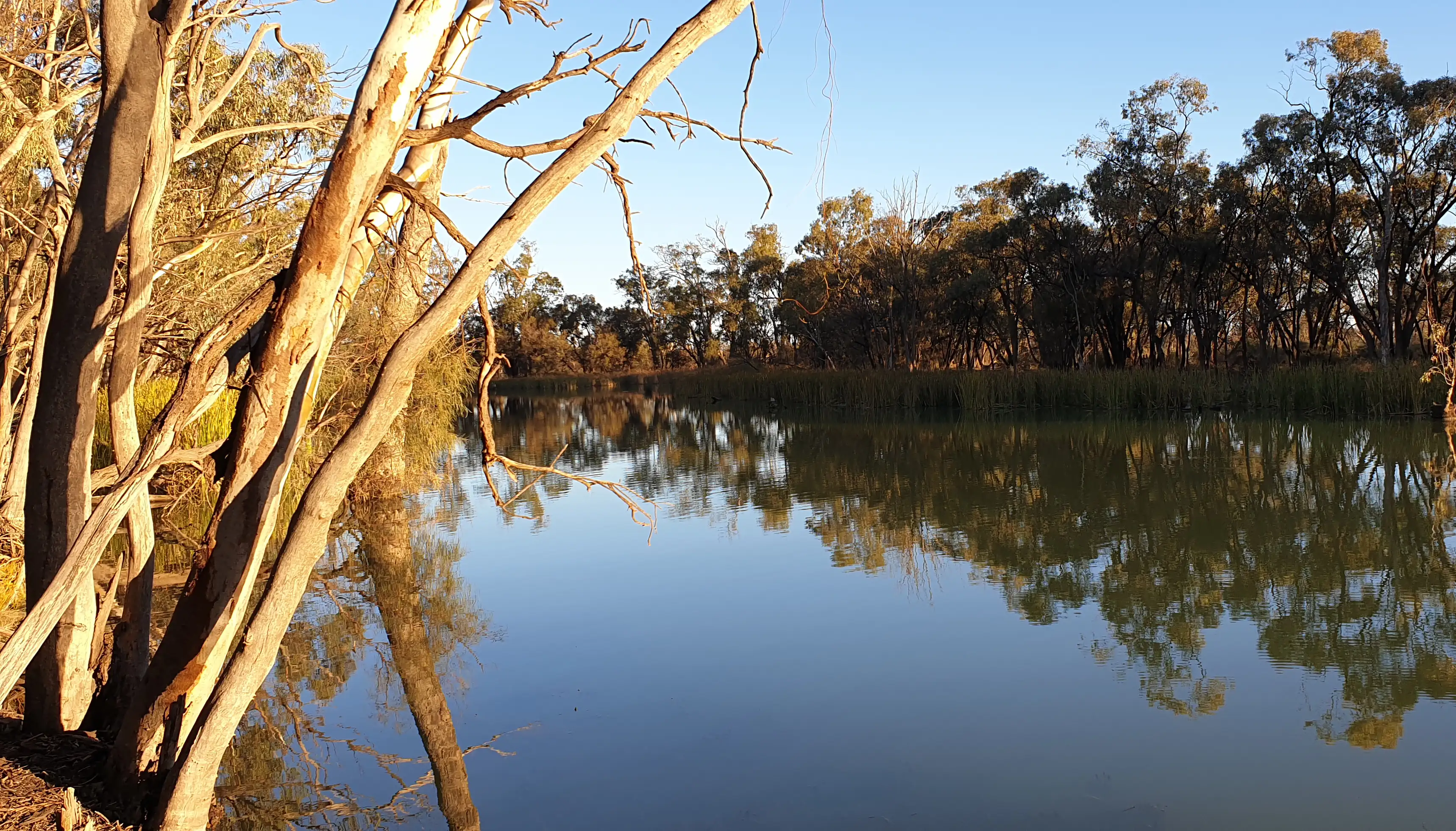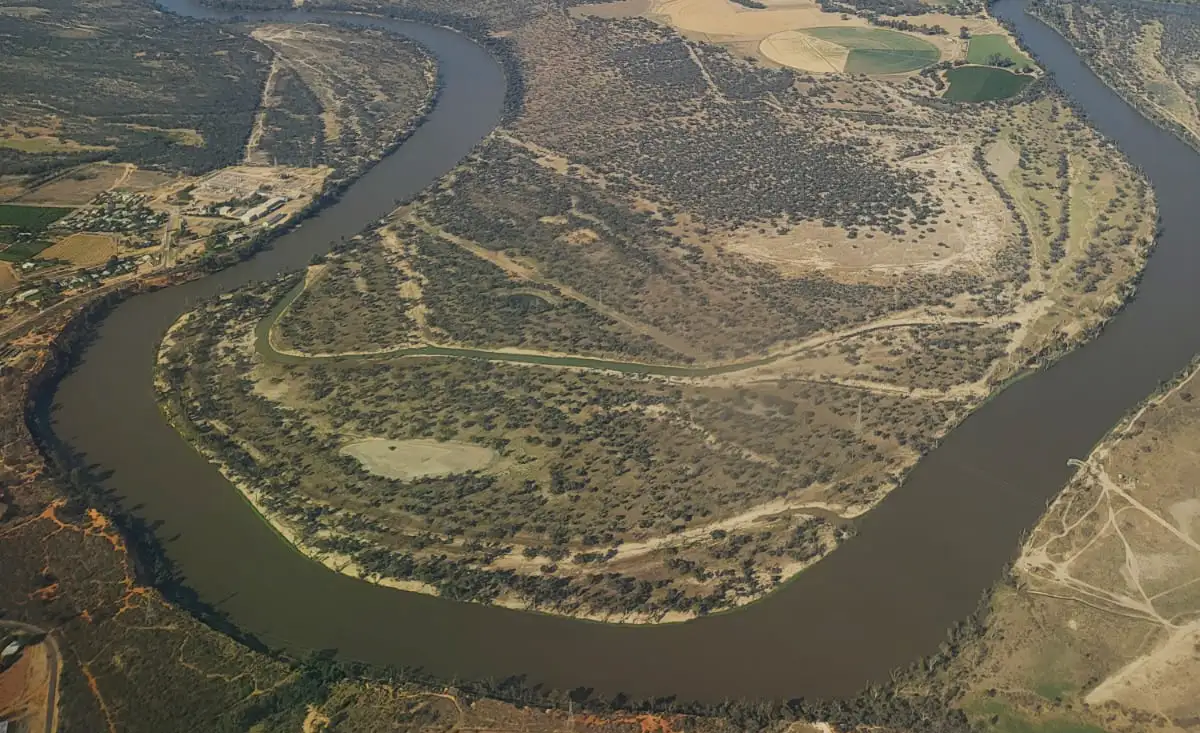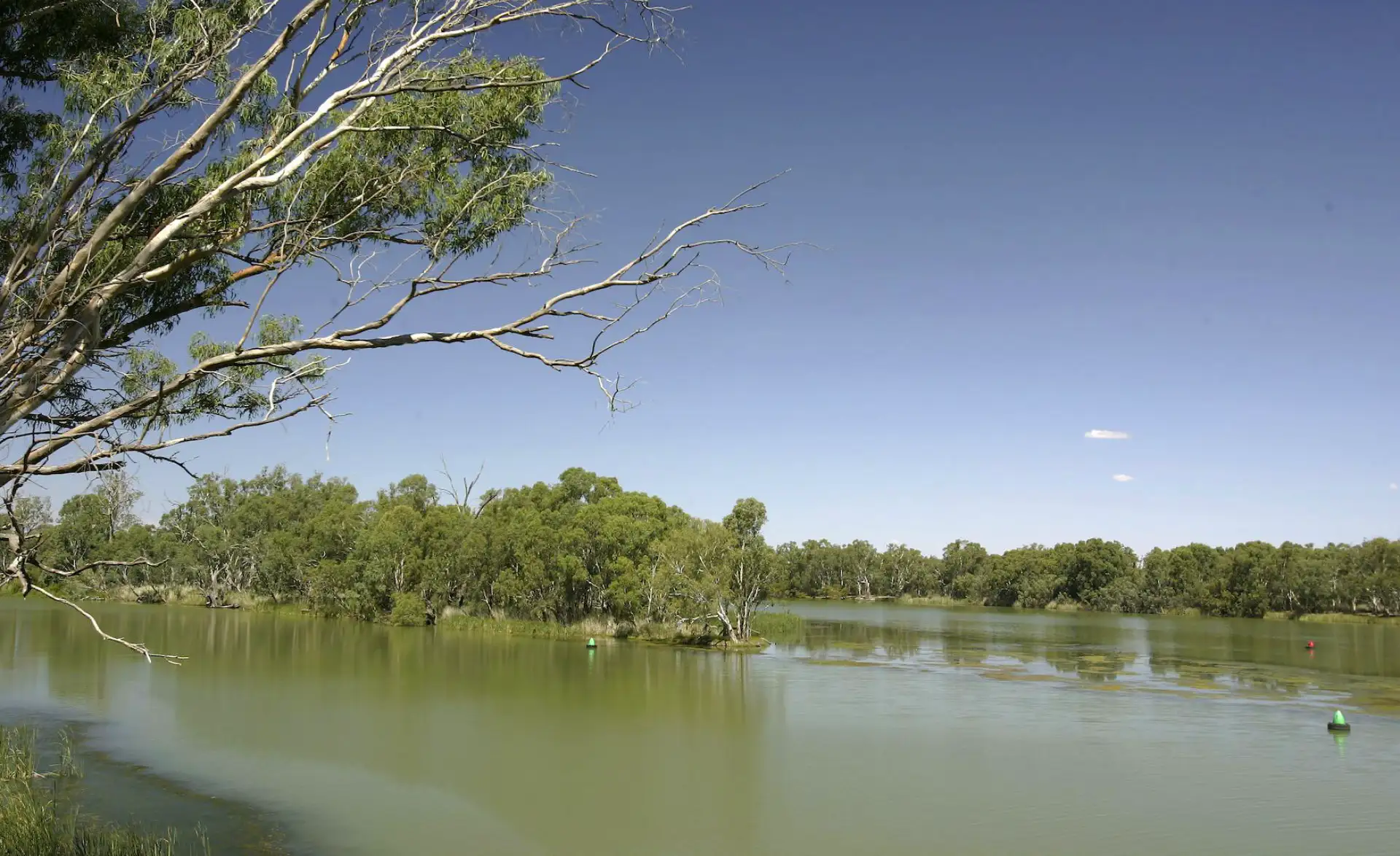
Politics & Society
The legacy of aqua nullius is causing a sustainability disaster

Aboriginal Traditional Owners now have more control over parts of their ancestral lands – but a colonial-era quirk in water law means they can’t freely use the water that flows through it
Published 26 August 2025
In July 2025, after a decade of litigation, the native title rights of Ngintait, Nyeri Nyeri and Latji Latji peoples were recognised in Victoria’s north-west – which included billabongs and wetlands connected to the Murray River.
The Federal Court found that their connection to and responsibility for their ancestral lands and waters remains strong, “despite the devastating effects of European colonisation, including killings, dispossession and systematic removal from Country and family”.

It’s a consent determination that represents a defining moment in Australian native title law in its application in Victoria, as it includes exclusive rights over some parcels of land.
Unlike previous Victorian determinations that recognised only non-exclusive native title, with shared access rights, this ruling gives Traditional Owners more power to say who can and cannot enter specific areas on their Country.
Exclusive possession native title is the right to possession, occupation, use and enjoyment of the relevant determination area to the exclusion of all others.
It is the strongest form of native title that can be recognised.
To date, the vast majority of exclusive possession native title (over 90 per cent) is found in Western Australia.

Politics & Society
The legacy of aqua nullius is causing a sustainability disaster
But here’s the catch.
While Traditional Owners now control the land, Australia’s legal system treats water as a commodity separate to land.
This colonial-era division means that, despite holding exclusive rights to parts of Country – exclusive rights to land does not include exclusive rights to water.
State and territory water laws vest the right to control the flow and use of water in the Crown (the settler colonial government).
In 2002, the High Court declared that this provision in state water laws meant that exclusive native title rights to water were extinguished.

And this decision continues to perpetuate colonial water theft – known as aqua nullius – which has resulted in Traditional Owners holding less than 0.2 per cent of water rights in Victoria.
The water that has sustained their cultures for millennia remains locked behind colonial-era regulations.
And as climate change intensifies pressure on Australia’s water systems, questions about who controls this precious resource become increasingly urgent.
The water in the Murray-Darling Basin is considered ‘fully allocated’, which means that any water made available to Traditional Owners must come from water savings or water purchase.
Needless to say, both are extremely expensive.

Politics & Society
Returning water rights to Aboriginal people
The Federal Government has committed $AU100 million to acquire water for Traditional Owners through the water market in the Murray-Darling Basin, but even this sum represents only 0.3 per cent of the total value of entitlements in the southern Basin alone.
The Aboriginal Water Entitlements Program has now commenced water purchases, but it’s a very slow process – and meanwhile, water prices continue to rise.
Native title and other agreements in Victoria typically enable the use of water for personal, domestic and non-commercial communal uses only.
Once Traditional Owners have access to water rights, they must still apply for state government permits to use water for economic development.
One of the confounding factors here is land tenure, as there may be a mix of public and private land managers who must agree to enable cultural flows.

However, in this case, once water rights are available, the exclusive rights to land now held by Ngintait, Nyeri Nyeri and Latji Latji peoples will make it easier to use water for cultural purposes, including economic development.
The First Peoples of Millewa Mallee Corporation, on behalf of Ngintait, Nyeri Nyeri and Latji Latji, has already developed water-related business cases, and this determination should make it easier to bring these ideas to life.
For Traditional Owners in Victoria, this determination represents both a triumph and a frustration.
The Millewa-Mallee determination may open the door to a new era of Indigenous land rights, but true water sovereignty remains frustratingly out of reach.

Environment
Australia’s rivers are ancestral beings
The fundamental separation of land and water rights embedded in Australian law will need to be reconsidered if Indigenous water justice is to become reality.
The Victorian settler state government must fully embrace the recommendations of the Yoorrook Justice Commission, including a meaningful recognition of water sovereignty that can genuinely address the theft of aqua nullius (recommendation 37) and removing barriers and supporting access to water for cultural economies (recommendation 38).
Water is a vital living part of Country and we all need water laws that acknowledge and address the problems created by aqua nullius.